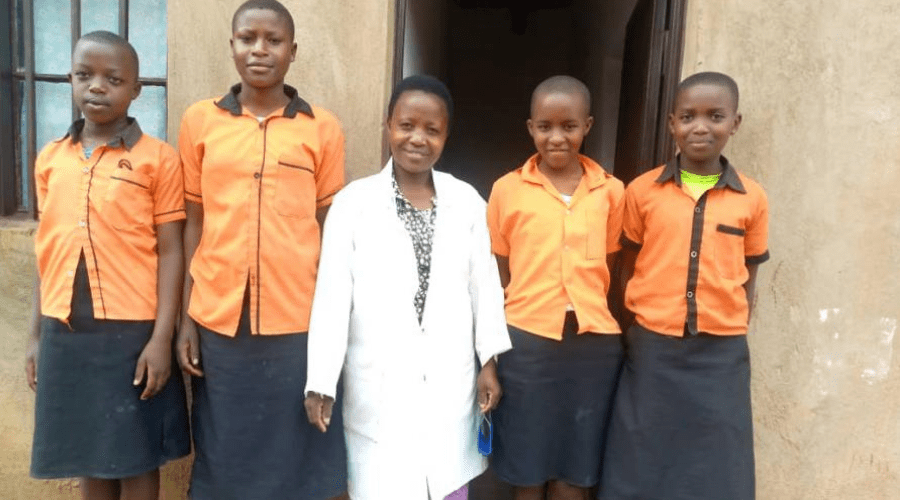Funded by Italian Episcopal Confederation (CEI 350/2020)
Duration: 3 years (June 2021 - May 2024)
General objective: Contribute to the improvement of the living conditions and health of children and teenagers of school age in the District of Gatsibo (Rwanda)
Specific objective: Contribute to the reduction of the incidence of water-related diseases and the improvement of hygienic conditions in primary and secondary schools
BENEFICIARIES
Direct: 18,677 students (aged 5 to 18) from 17 educational institutions, 110 teachers and trainers, 20 vulnerable women producers of sanitary pads, 300 low-income families receiving the subsidy for reusable sanitary pads (total 19.107)
Indirect: 433,000 inhabitants of Gatsibo District
PARTNER
Community Fountain Organization (CFO), a Rwandan non-profit organization founded in 2017 by a group of experts in education, psychology, health and hygiene.
CONTEXT
In rural Rwanda, 20% of the population has no access to sanitation facilities and of the remaining 80%, only 8% meet the minimum requirements set by the Rwandan government and the WHO on hygiene. In Gatsibo District, sanitation facilities are scarce and latrines, where present, are often old and poorly designed or poorly maintained. In the schools, the student/latrines ratio is around 65 students for 1 latrine, while the country's minimum hygienic standard is around 50 students per latrine, without any excrement disposal system, which causes risk of deterioration in groundwater quality. The lack of adequate infrastructures and a correct culture of "hygiene" cause an unhealthy environment, which favours the proliferation of diseases related to water and hygiene. This particularly affects young female students.
In this cultural context, in fact, the topic of menstruation is still a taboo subject, a cause of stress, shame, fear, insecurity and embarrassment for female students who find themselves facing it in an inadequate infrastructural and social context. This whole situation, linked to the economic impossibility of buying disposable pads due to the too high cost, leads female students to be absent from school for 4-7 days a month, which means missing lessons for about three months per year.
ACTIVITIES
- Construction of 96 latrines and rainwater collection tanks in 17 schools;
- Construction and rehabilitation of Girls Rooms in each school, rooms equipped with private bathrooms, where female students can wash and rest during their cycle;
- Training and awareness campaigns on hygiene and menstrual cycle issues for pupils and teachers, but also for their communities;
- Creation of one cooperative for the production of reusable sanitary pads






